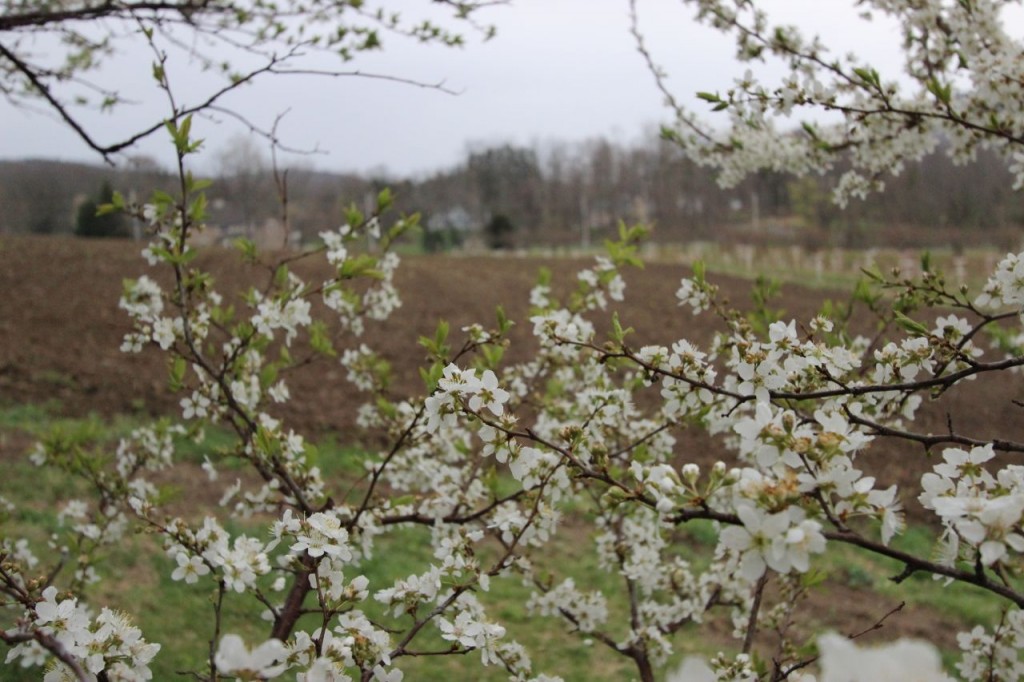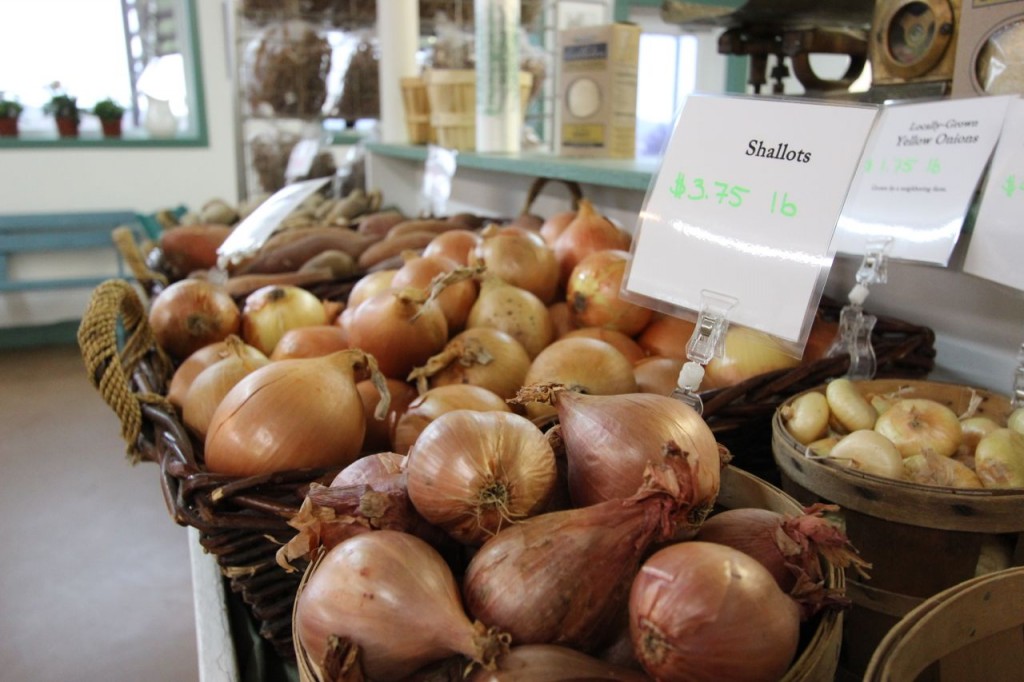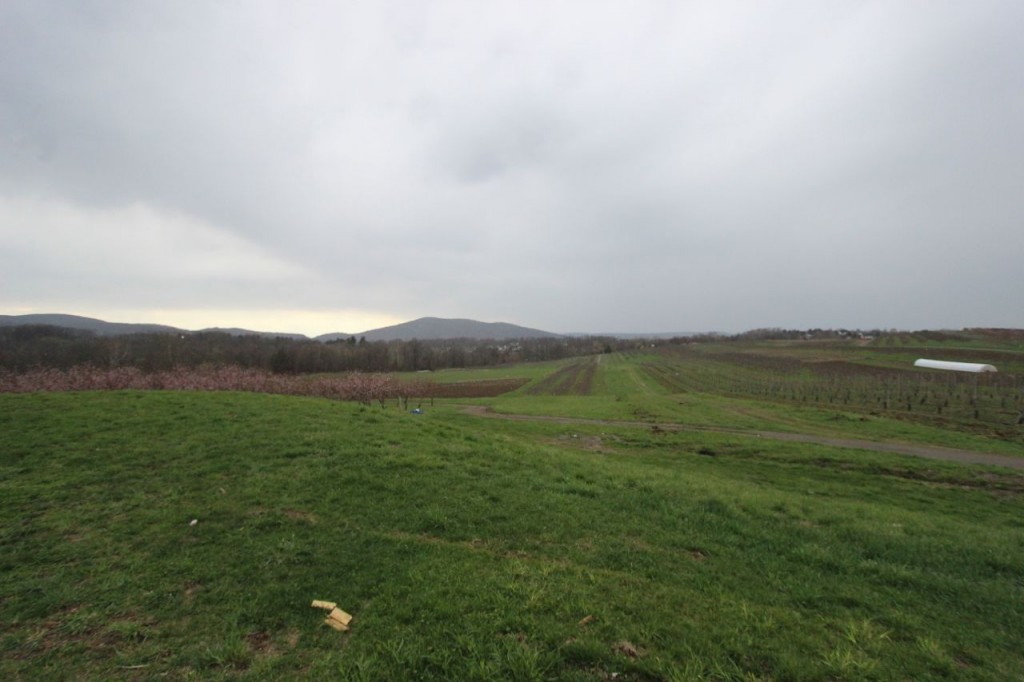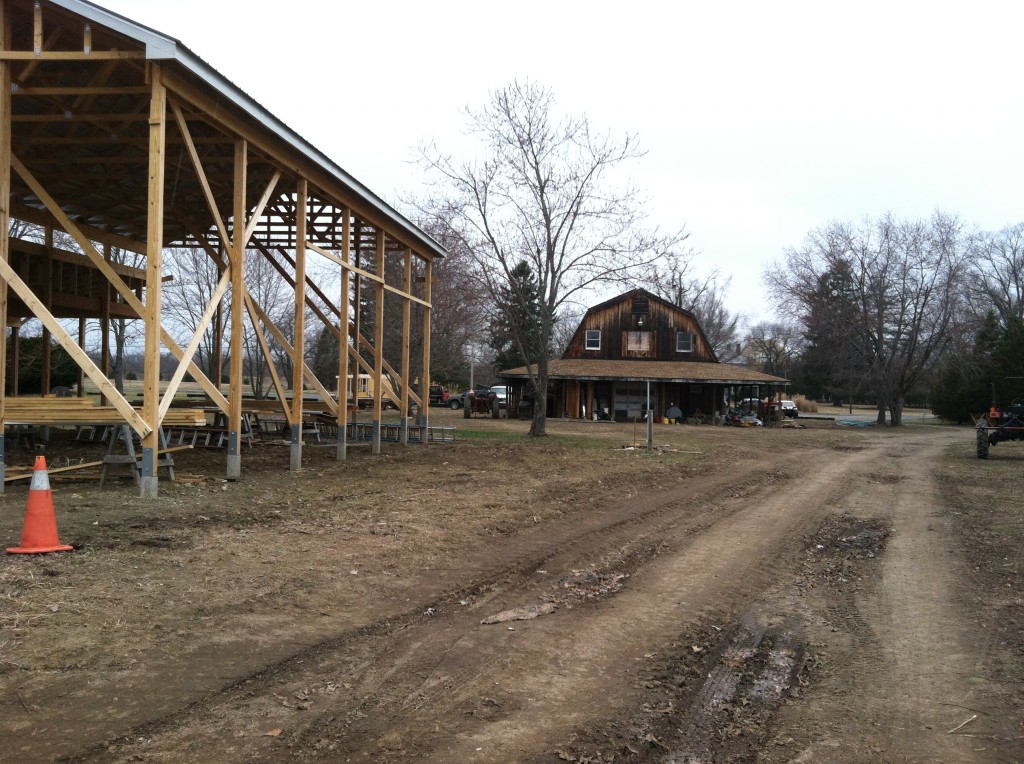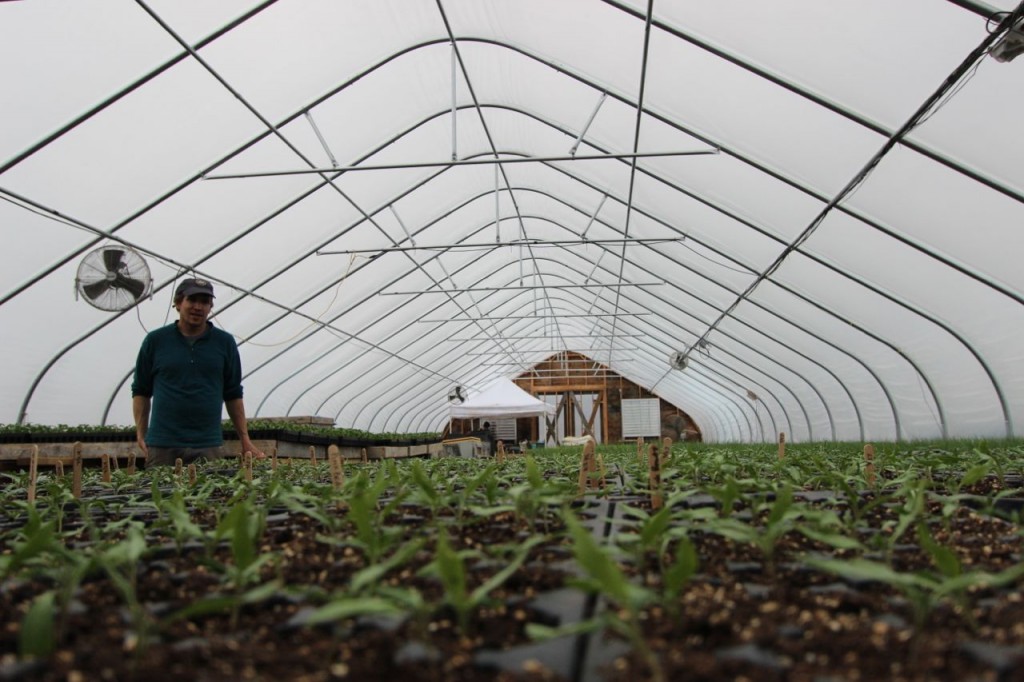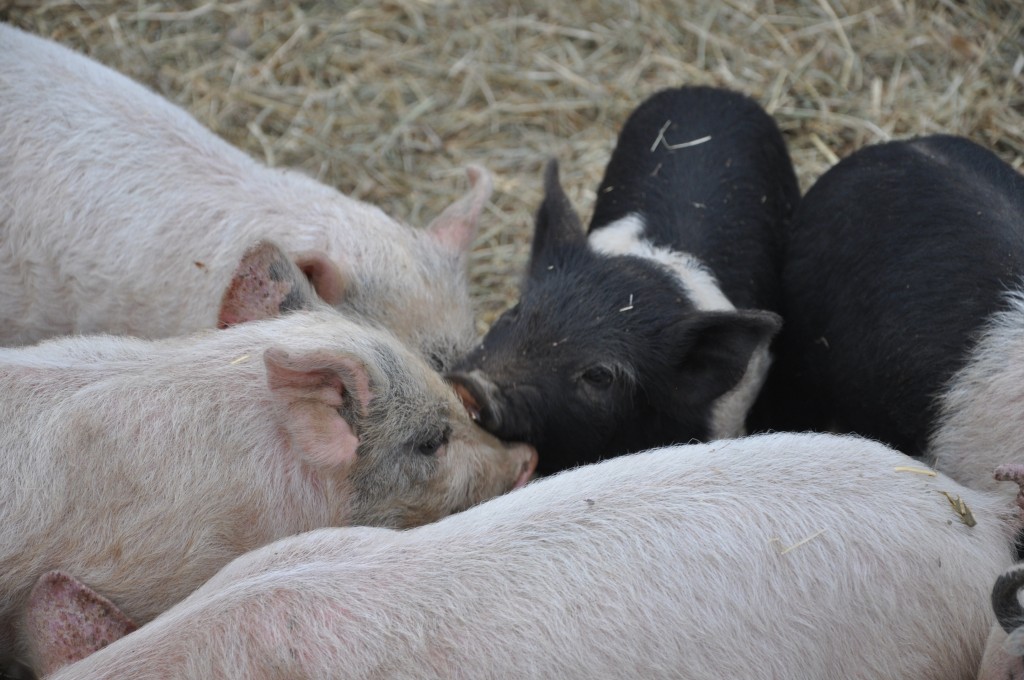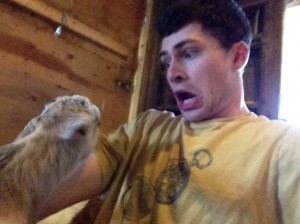Last Saturday I went to Fishkill Farms out in Hopewell Junction, NY. I recieved a warm welcome from the staff, first receiving a bit of history about the farm from their business manager Mark Doyle. The farm was started by Henry Morgenthau in 1914, a man who also participated in public service and government under the FDR administration. For a long time the farm mostly grew apples on their 150 acres of usable farmland, peaking in size in the 40s with the development of refrigerated transport. However, in 1965 Fishkill Farms turned towards a pick-your-own CSA model to adapt to the changing demand. Today they grow a variety of fruits and vegetables and sell produce at farmers markets in Brooklyn and local grocery stores in addition to CSA members. While only one third of their orchard is certified organic, the farm’s vegetables are grown completely organically and the farm prides itself on being an ecologically sustainable farm, taking the NOFA’s “Farmer’s Pledge” (National Organic Farmers Association) and continuously working to minimize the need for chemical sprays. Like many organic farmers they also emphasize the importance of maintaining healthy soil and a connection to the local community.
William McCaffery, Fishkill Farm’s Orchard Specialist, generously walked me about the farm property and explained some of the differences between fruit and vegetable farming. William grew up on a cranberry farm in Massachusetts and went to the Cornell school of Agriculture. He described fruit and vegetables as entirely different beasts. Veggies tend to go hand in hand with organic practices because they grow in the same way whether that’s on the farm or in nature. Fruit, on the other hand, is designed to be eaten by animals to spread seeds and pollen, and so naturally attracts insects and other non-human consumers. To grow fruit is inherently fighting against nature from the start, which makes organic fruit growing difficult. William pointed to the now flowering trees and said this stage of the season is critical, because it is when the orchard is most vulnerable. The current main threat is actually from fungi, and while research is going into a beneficial fungus that will block harmful fungi from growing on their trees it is still too experimental to risk a whole year’s yield. For now Fishkill Farms has to use fungus sprays, using nature as a template as much as possible by keeping to natural chemicals. The 80 acre orchard is made up of 56 acres of apples, 4 acres of pear, and 20 acres of stone fruits (fruits with a pit) and berries. William has been with Fishkill Farms since February after working at Red Jacket Orchard for two years, and plans on eventually starting his own orchard in the future.
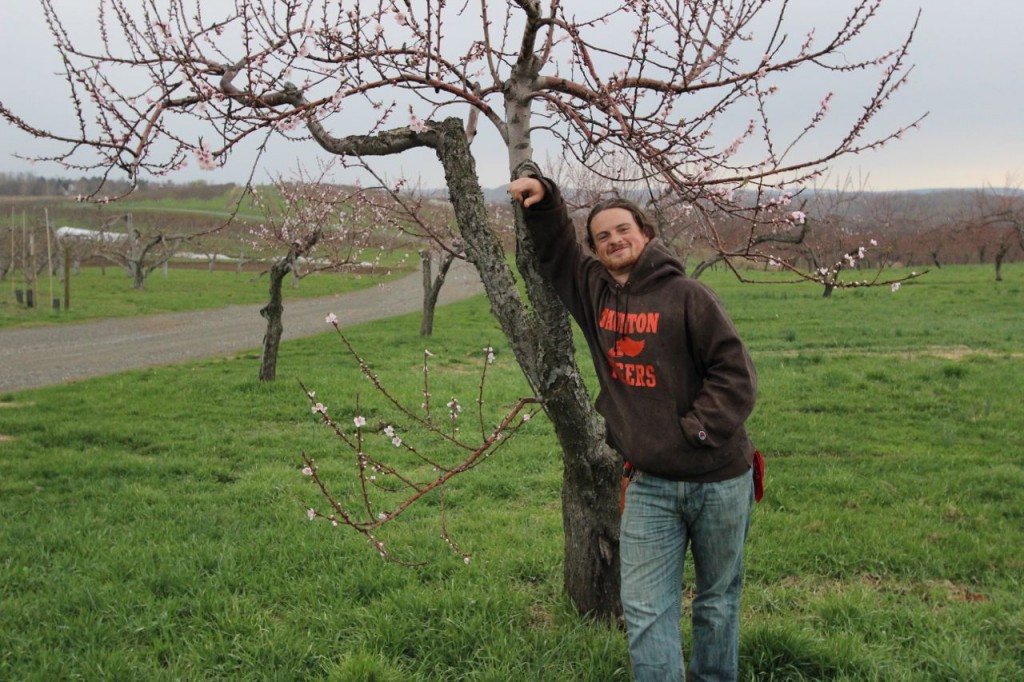
I found the economic dynamics and politics of organic farming at Fishkill Farms particularly interesting because they started with conventional practices and began committing to organic farming later on. The way in which they grew seemed very important to them, but the farm still needs to profit and that informs their practice as well. William revealed how international the competition can be when he talked about a website called FAOSTAT. There you can find the statistics of everything from market price to production quantities of every type of agricultural commodity from every country in the world. He described how it’s advantageous to have “China-proof”crops, meaning crops that aren’t mass-produced and sold cheaply from overseas. This is especially important when a farm decides to try a new crop, because this will partly determine whether it will be profitable or not. I think it is very interesting that local farms aren’t only competing with industrial farms within the US, but on an international scale as well.
